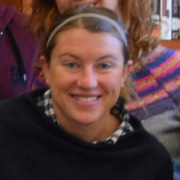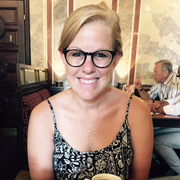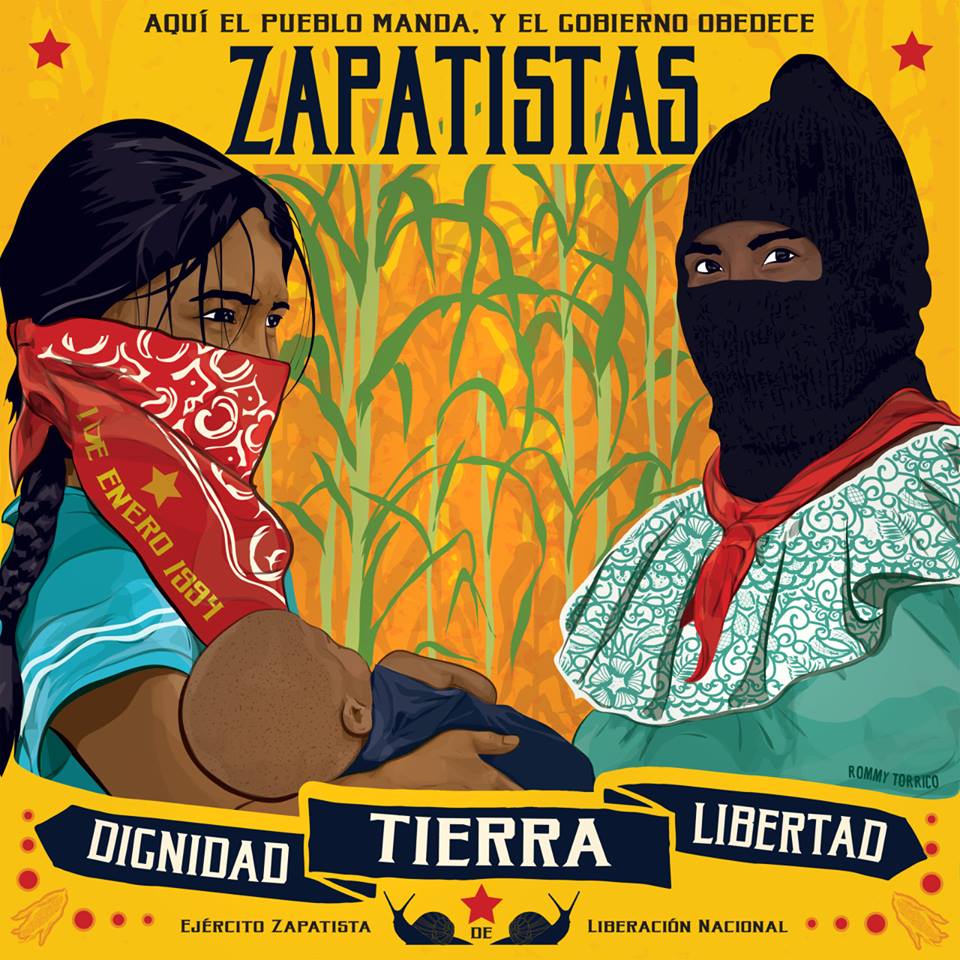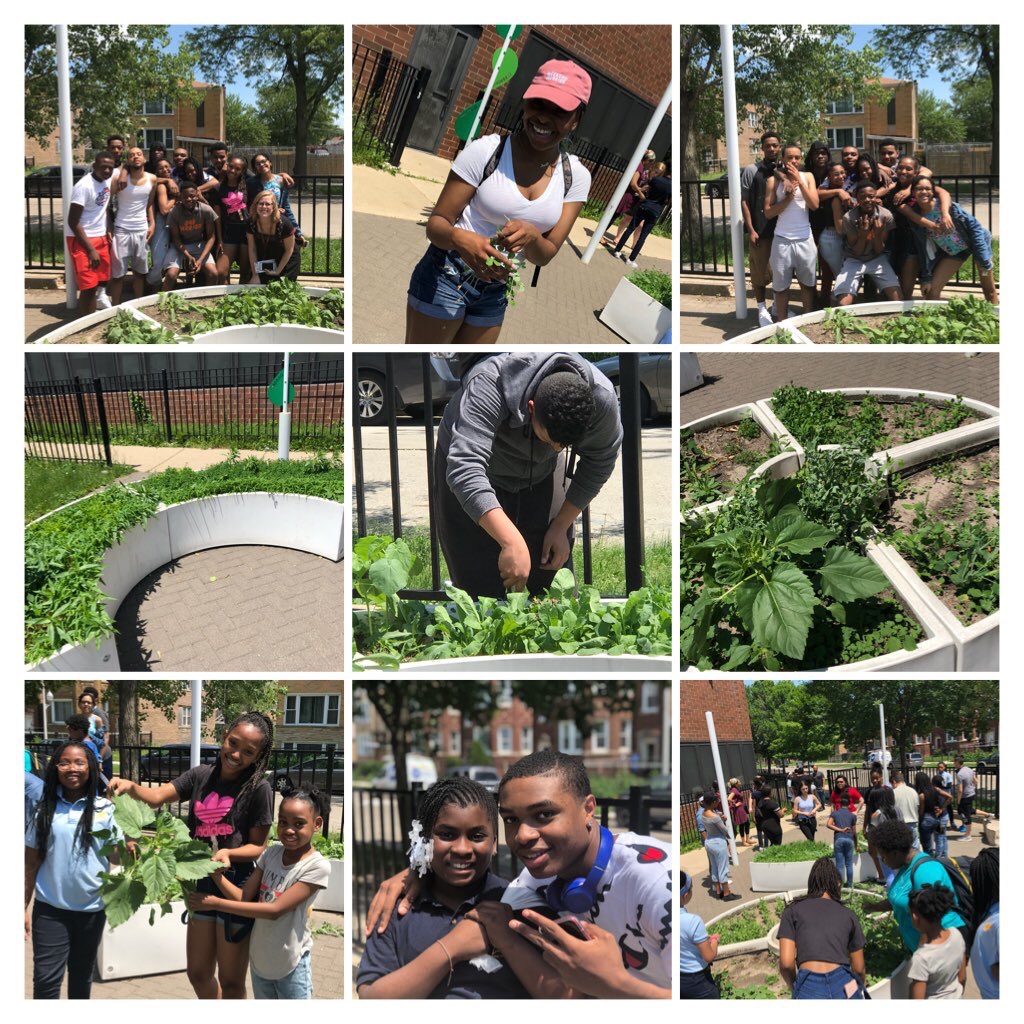[minti_dropcap style=”circle”]B[/minti_dropcap]ack in the ’80s, when Saturday Night Live was funny, Jon Lovitz did a skit called “Get to Know Me!” espousing how people (i.e. Steve Martin) benefited from knowing him. We believe the same is true of our 2019 Fellows and are, therefore, continuing a blog series throughout the summer to introduce you to many of our grant recipients.
Today, we meet the teaching team of Kaellagh Cassidy and Katie Hollerbach, teachers at Chicago’s Robert Lindblom Math and Science Academy High School. FFT fellowships designed around language/cultural immersion are a favorite among our grant recipients; this particular one, however, has an interesting component: collaborating with indigenous communities in Mexico to inspire our own civic action projects.
[minti_divider style=”3″ icon=”” margin=”20px 0px 20px 0px”]
On why they designed this fellowship…
Our student population is predominantly African American (70%), but the Latnix population is rapidly growing. Our school actively works to foster an inclusive environment that celebrates all cultures and backgrounds: we provide mirrors for students to see themselves in historic and academic texts; we do case students on racial inequality in Brazil; and address trauma in Haiti and youth homelessness in Morocco. However, we wanted to expand and diversity the examples we include from Latin America.
Thus, we designed this fellowship to study Mexico’s indigenous cultures and establish a partnership with a community school in Chiapas to design a unit on the fight for land and education rights.
We believe that a unit on indigenous activism and historical memory of indigenous contributions will affirm to our Latinx students that their history matters.

On their itinerary…
We plan to travel through central and southern Mexico, exploring museums and cultural sites that highlight indigenous culture and speaking to local experts to better understand the relationship between national identity, indigenous history and culture. Our itinerary includes:
- touring the National Museum of Anthropology and interviewing its director of education outreach
- experiencing Chichen Itza, one of the most significant and well preserved sites of Maya and Toltec acculturation,
- exploring Teotihuacan, one of the largest pre-Hispanic cities in the Americas, the Frida Kahlo Museum, Museum of the Palace of Fine Arts and the Cathedral of Our Lady of Guadalupe,
- working alongside and learning from teachers and community members involved with the NGO Escalera to learn more about access to education in indigenous communities,
- visiting important sites associated with the Zapatista movement, including San Cristobal de las Casas, and
- interviewing local experts, community members, and journalists who are involved with indigenous activism and education, including indigenous experiences with employment and integration into Mexico City and other urban environments.
On plans for students…
The Zapatista mentality (emphasis on direct democracy, valuing all voices, and inclusivity) will be an engaging topic to begin the school year with, and will also create an opportunity for students to structure our own classroom community and goals. Throughout the fall, we will more effectively validate our Latinx students through new learning, as well as connections with other courses and organizations at school, including the Latino Culture Club, Black Student Union and the Step Team. Additionally:
- A unit in our Gender & Ethnic Studies course current connects the work of the Madres de la Plaza de Mayo to the actions of female activists against gun violence in Chicago. We plan to add connections to the female Zapatistas and activists we meet to enrich this unit.
- The AP World curriculum will incorporate Mexican revolutions more thoroughly by emphasizing how the Zapatistas continue to advocate for autonomy and freedom.
- Our Human Geography course, which examines urbanization and the migration of people to cities, will include knowledge about indigenous groups moving to Mexico City because of a lack of employment opportunities in more rural areas. And,
- In the culminating project, students will plan and execute civic action projects of their own in response to issues facing our Chicago community.
As white teachers instructing on indigenous cultures, we want to ensure we’re not simply relaying the simplistic narrative often found in textbooks, but allowing the experts in the field to inform our instruction. Rather than be instructors with a monopoly on knowledge and information, we want to build a unit that authentically connects students with the course content in a way that puts students in the position of power.
- Zapatista poster advocating for dignity, land & liberty
- Katie & Kaellegh’s students at a previous civic action project
[minti_divider style=”3″ icon=”” margin=”20px 0px 20px 0px”]
 Kaellagh Cassidy has taught history and civics in Chicago for eight years. She aims to put her students in the shoes of historians and activists by re-examining historical truths through documents and simulations and student-driven civic action projects. Kaellagh is also a coach of Cross Country and Track and believes that high school should be a community that fosters student curiosity and empowerment.
Kaellagh Cassidy has taught history and civics in Chicago for eight years. She aims to put her students in the shoes of historians and activists by re-examining historical truths through documents and simulations and student-driven civic action projects. Kaellagh is also a coach of Cross Country and Track and believes that high school should be a community that fosters student curiosity and empowerment.
Katie Hollerbach has taught high school social science at Lindblom Math  and Science Academy in Chicago for the past eight years. She is passionate about including a global mindset into each of her classes, which currently include Global Civics and Gender & Ethnic Studies. In 2017, she traveled to Morocco as part of the Koldyke Global Teacher Program. She also is a teaching assistant in the MSEd Program at Northwestern University.
and Science Academy in Chicago for the past eight years. She is passionate about including a global mindset into each of her classes, which currently include Global Civics and Gender & Ethnic Studies. In 2017, she traveled to Morocco as part of the Koldyke Global Teacher Program. She also is a teaching assistant in the MSEd Program at Northwestern University.


 [minti_dropcap style=”normal”]T[/minti_dropcap]his week marked the 70th anniversary of the
[minti_dropcap style=”normal”]T[/minti_dropcap]his week marked the 70th anniversary of the 
 Brian Peck & Zach McCullough II
Brian Peck & Zach McCullough II



 Margret Atkinson’s language arts students in Zachary, LA, lead a double life. When not studying literature on historic and contemporary Upstanders, they operate an
Margret Atkinson’s language arts students in Zachary, LA, lead a double life. When not studying literature on historic and contemporary Upstanders, they operate an 